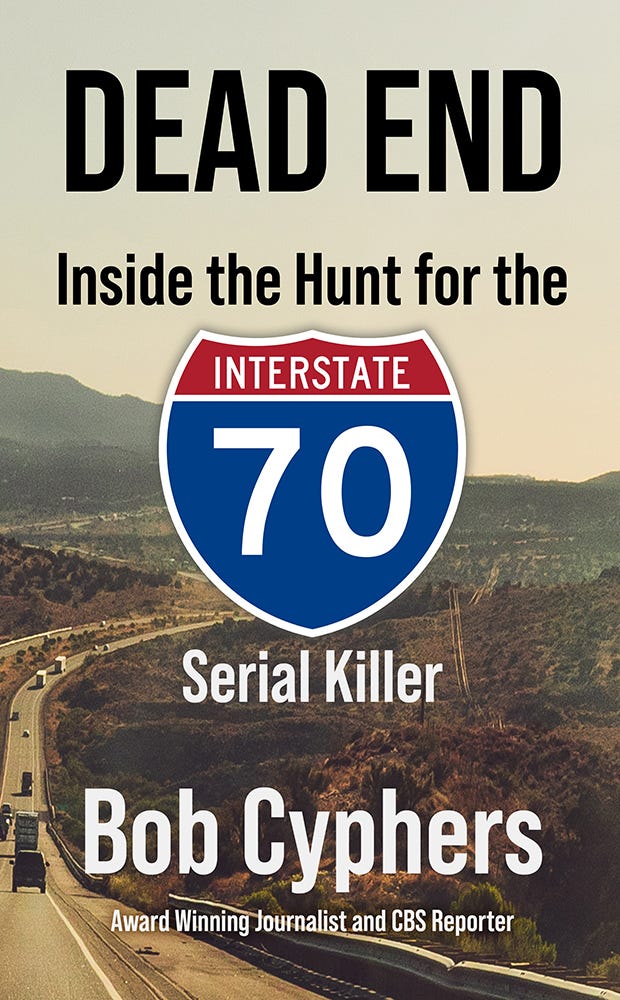The Ghosts of Fox Hollow Farm: Dead End by Bob Cyphers
Bones in the backyard. A killer on the run. And backhoes still digging 30 years later.
Before the I-70 killer, there was another horror in Indiana.
While working on Dead End, journalist Bob Cyphers and his team traveled to Indianapolis—the site of the first I-70 murder. But for Cyphers, there was another place he had to see: Fox Hollow Farm, the home of Indiana’s most prolific serial killer, Herb Baumeister.
In this chilling essay, Cyphers recounts what they found at the mansion where more than 10,000 bone fragments were discovered—and the shocking update he received just weeks later.
Our trip across America began in Indianapolis, where Robin Fuldauer was the first victim of the I-70 serial killer. Indy police had been down this road before. After all, this is where Herb Baumeister called home. murdering over a dozen men in the 1990s, and suspected of a dozen more. Baumeister would leave their body parts scattered on the farmland of his Fox Hollow Farm mansion. He would take his place in history as the most prolific serial killer in Indiana.
"We need to go there," I said, looking around for anyone who agreed.
The Indianapolis detectives looked at me like I was crazy. But I knew my crew was all for it.
So we left Indianapolis and drove north to Westfield. Fences parallel the road that enters the land. You can see the horse stables on one side of the mansion. The woods around the property where the bodies were found were turning barren with the upcoming winter weather. And on this day, the entrance was closed, backhoes were on sight, and construction was going on. We could get no closer to the horrific tale.
It began when one of the Baumeister children found a human skull while playing in the woods of Fox Hollow Farms. When Baumeister's wife Julie went to the woods to look around, she found another pile of human bones. When she questioned Herb about it, he claimed it was a medical skeleton device that his father, a doctor, had given him years ago when Herb was a child. Police arrived quickly, and the search did not take long. Within days, more than 10,000 bone fragments were found in the land around the mansion. Incredibly, bones and body parts that were barely covered with leaves sat just 50 feet behind the Baumeister home.
But there was no suspect to search for. With police now clearly on his murderous tail, Baumeister had packed his bags and fled to Canada. He left behind a three-page suicide note saying how sorry he was but made no mention of the eleven bodies found on his land. His note said he was going to eat a peanut butter sandwich and then go to sleep. When police located his car at Pinery Provincial Park on Lake Huron eight days after he disappeared, he had already put a .357 Magnum to his forehead and pulled the trigger.
Weeks later, back in St. Louis, my phone rang. It was the Indianapolis police.
"Bob, have you seen the news?"
"No," I answered. "What's up?"
"Baumeister. Go look it up."
I started searching for Indianapolis news. Incredibly, nearly 30 years after body parts were found on Fox Hollow Farms, excavators identified twenty additional locations where more bodies may be buried. Those backhoes out there we saw weeks earlier were not just digging. They were searching. The chilling tale was still unfolding.
About the Book:
Dead End: Inside the Hunt for the I-70 Serial Killer tells the story of a multi-jurisdictional effort to solve a decades-old case. Through new evidence, interviews, and haunting insights like this one, author and journalist Bob Cyphers brings attention back to the victims—and the search for justice.
Anyone with information about the I-70 case should contact the hotline:
📞 1-800-800-3510



